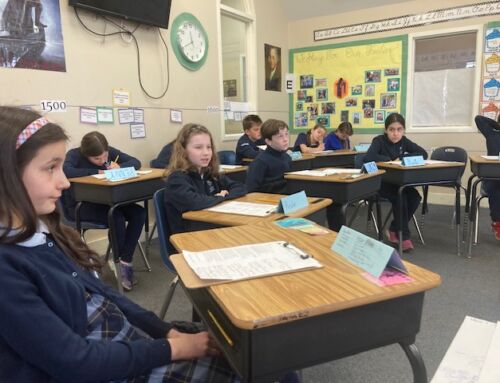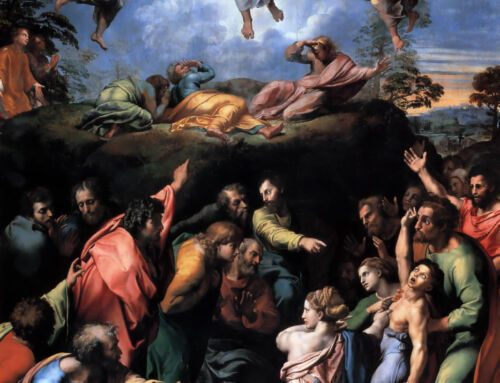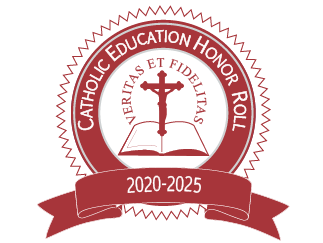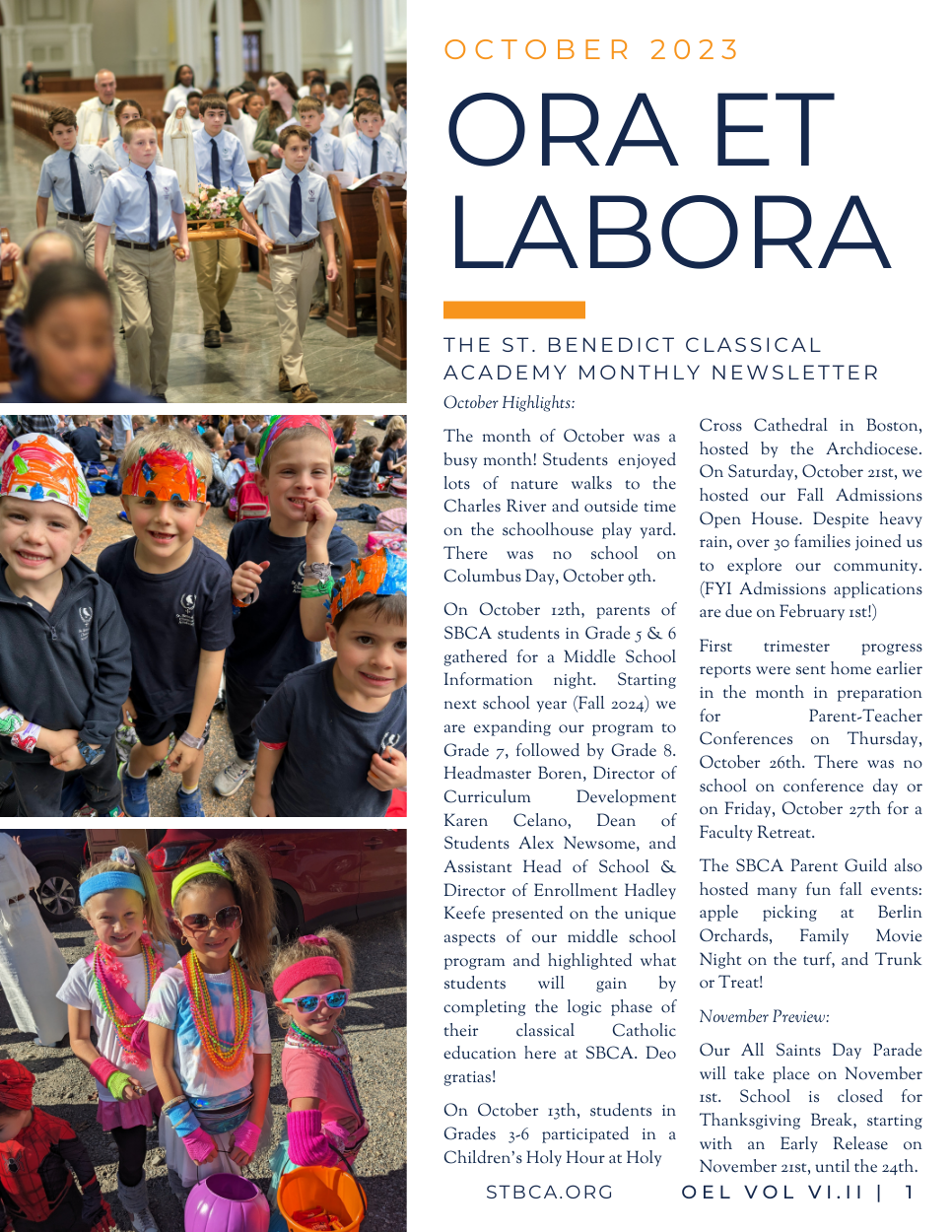After he had finished speaking, he said to Simon, “Put into Deep Water and Lower Your Nets for a catch.” Simon said in reply, “Master, we have worked hard all night and have caught nothing, but at your command, I will lower the nets.” When they had done this, they caught a great number of fish and their nets were tearing.
Luke 5:1-11
It was the first day of my second year of teaching, and I was kneeling in the pew before morning mass reflecting on the Gospel passage above. As I knelt there feelings of discouragement were hitting me hard from all angles; the moments when a Christian sets out to do some righteous act are often the moments when Satan attacks the heart most viciously to prevent the person from proceeding forward. Teaching is a great deal of work, and since the vocation of teaching is concerned with cultivating the virtues within the soul of the pupil—an internal process—the fruits of this labor are, for the most part, invisible to the teacher. Furthermore, teaching illuminates for the teacher his own imperfections, and without a constant trust in Divine grace, a teacher can lose confidence that he is fit to guide young souls to Christ.
Such thoughts filled my head that morning and I was experiencing more and more reluctance to go forward into a second school year. My mind was preoccupied with everything I felt I had failed at the year before, and I was having doubts that I had the capacity to live a life of charity as a teacher. This all changed when, in the Gospel, I heard Simon Peter’s response to Christ’s command: “‘Master, we have worked hard all night and have caught nothing, but at your command, I will lower the nets.’” At this moment I realized that the Lord was commanding me and inviting me to “Duc in Altum: Put into Deep Water” once again. Even if it felt like it would be in vain, here He was, commanding me to do it anyway. It was an invitation to trust even further beyond what seemed reasonable and comfortable. Now eight weeks into the year, I have carried this passage with me; not only for myself, but also as a guide for my students.
In my junior year in college, I frustratedly asked my Natural Science professor why it was necessary for us to learn every mathematical detail of Newton’s Philosophia Naturalis Principia Mathematica. I told him bluntly that I felt that I had not understood nor retained a single one of Newton’s Propositions, and that this was how I felt about most of the math classes I had taken in college as a whole. In my mind, learning the minute details was a draw in my education; it seemed to require so much time that I couldn’t study my other subjects, and it distracted me from the bigger picture of Newton’s project in his Principia. My professor, who carried such an excitement for the course material that he could not talk about it without breaking into a huge smile, replied to my question that the arduous leg-work of seeking to understand every detail and continually falling short was precisely what would allow me later on to know the concepts more clearly. His point was that every time I return to a challenging notion or proposition, having already gone through each arduous step of it in the past, mastery of the concept will be slightly more tenable. Even simply being exposed to an extremely difficult concept and utterly failing to make any sense of it, improves the student’s capacity to understand the concept on his second attempt.
I noticed the truth of this claim this past summer when, along with three other teachers from SBCA, I attended a Fides et Ratio conference in Oklahoma City. Many of the works that we discussed at the conference were either the same works I discussed in college, or they contained terms and ideas that I had prior experience. I was reminded in a real way that education is a lifelong pursuit of truth; the purpose of formal education in elementary years and then in high school and college is to teach the student how to learn, just as much as what to learn. As an adult, the student, having been thoroughly exposed to fundamental concepts in various disciplines, can genuinely appreciate real freedom when revisiting any of these disciplines. This deeper understanding arises not only from increased life experience but more fundamentally from the capacity to learn, which was established during formal education.
In the Gospel of Luke, Simon’s response to Jesus is one of obedience. Instead of reassessing his prospects and making a rational decision about whether to let down his nets, Simon throws his nets into the deep abyss purely out of obedience to Christ’s command. Precisely this act of blind obedience and trust is what then gives Simon the capacity to catch more fish than he can handle.
The world of learning is also a dark abyss. Often it feels impossible to know where to start; we do not know what questions to ask because we are not even aware of what it is that we cannot understand. At the same time there is academic pressure from all sides to succeed and be the best – earning good grades, getting into the desired schools, being in a high status among one’s peers, pleasing our teachers and our parents… and the list goes on. Oftentimes due to such pressure, a student may either make aggressive attempts to understand the material as if the act of understanding were something he could force, or he will give up and decide that he is forever incapable of learning and that whatever subject he struggles with is an altogether useless endeavor. In both cases, the student’s soul moves out of the position that it needs to be in in order for learning to take place.
Last week I articulated the attitude of a good student to my sixth graders, who are currently in the midst of their noble struggle with the Latin language. I described the scene from the classic John Wayne movie, Hondo, in which John Wayne’s character, Lane, teaches a young boy how to swim by tossing him without warning into deep water. He yells a few meager instructions to the boy, and within seconds the boy is swimming well. In this scene it is not actually Lane who teaches the boy to swim, it is the boy’s own willingness to undergo a challenge that he does not know how to do. The boy demonstrates obedience and trust, and as a result learns a skill that Lane believes everyone should know how to do.
The Rule of St. Benedict is a fitting foundational document for an institution of learning. In the Rule, St. Benedict’s overarching focus is obedience. He begins his prologue to the Rule: “Understand with willing mind and effectually fulfill thy holy father’s admonition; that thou mayest return, by the labour of obedience, to Him from Whom, by the idleness of disobedience, thou hadst withdrawn.” Obedience is the beginning is the first virtue; the one necessary for learning. A student needs openness and docility in order to be taught; the same kind of trusting docility that Simon conducts himself with in Luke 5. This is also evident in the story of salvation; in the Old Testament, God requires the Israelites to be obedient to His every instruction, even to those with the most specific details such as the dimensions of the curtain-rods that will surround the Ark of the Covenant. He repeatedly tells the Israelites that abiding by His laws and statutes is how they will remain in a covenant with him. As the considerable four thousand years pass, in which many failures take place, God then decides to give them the Truth in a personal and intimate way through His Son. The four thousand years of waiting for the Messiah are the preparation period for the Israelites to become rightly disposed to be able to receive understanding of God’s Word when He comes.
Likewise the soul of the student needs a preparation period in order for understanding to take place. Learning, by nature, involves repetition, and frustration is inevitable. Each time a truth or concept is revisited the mind can grasp it slightly more easily and slightly more deeply. Once the student’s heart is softened through practices of obedience, he or she will be capable of receiving guidance and truth, and also willing to wait patiently for understanding to occur no matter how many attempts it takes. A student’s heart that is full of goodwill can patiently and bravely stand firm, through repeated failures and exposure to what is far beyond his or her comfort zone, and cast out into the deep.
AUTHOR: Peter Dowdy, Latin & History Teacher








